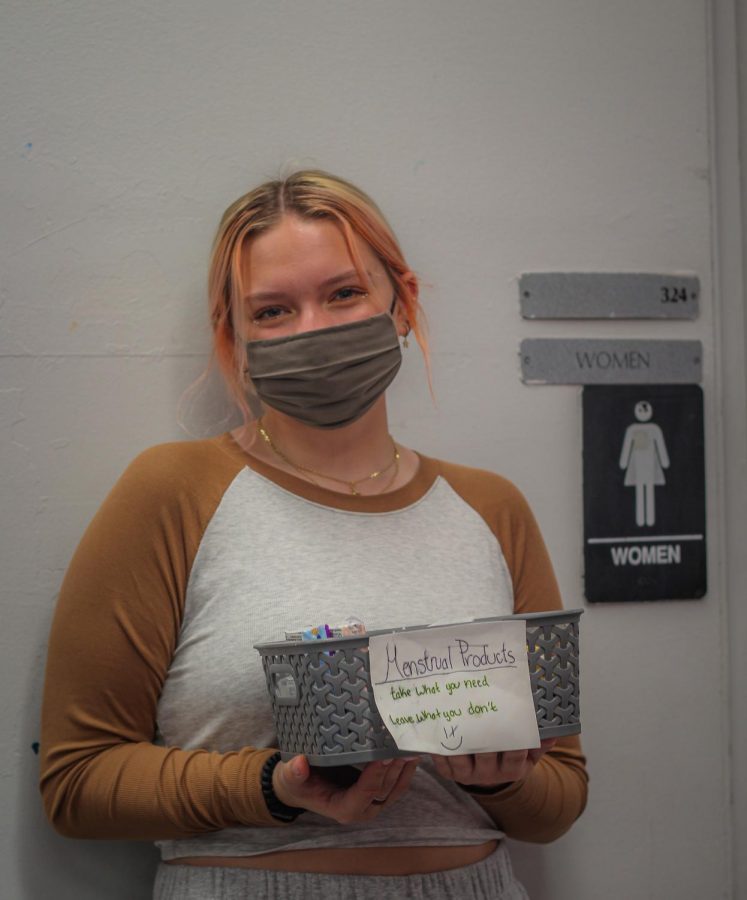Menstrual products in the bathrooms
Chrissy Kuiper had just started her period and found herself stranded in the bathroom without the needed menstrual products. She had grown comfortable enough to ask her peers for these products. Still, she is aware situations like this can be extremely difficult for many people who experience menstrual cycles.
“I can [ask] now, but as a freshman or a sophomore, I probably wouldn’t have done that,” Kuiper said. “It’s kind of scary for anyone who has a period because it’s very stigmatized — it’s something that we’re supposed to keep to ourselves.”
Kuiper decided to take action and help others who may find themselves in a similar situation. She has stocked the bathrooms on both the second and third floors with bins of menstrual products. Having these products openly available will allow students to avoid the discomfort and stigma associated with asking for menstrual products.
“It gives people a little bit of security,” Kuiper said. “They know—‘If I’m at school and I don’t have anything on me and I happen to start my period, I can go to the bathroom and know there will be something there for me.’ It more just brings comfort to a community of people that experience the same natural thing.”
In addition to providing the community with comfort and security, supplying the bathrooms with menstrual products also allows for equal access to these essentials. Low-income families may often experience stigma around menstruation and poverty intersectionality, so having cost-free products available is even more critical. Although providing menstrual products can get expensive, Kuiper stocks the bathrooms weekly to maintain a steady supply. She purchases a variety of supplies, including organic alternatives for students who don’t use regular tampons.
“I’m not upset if it gets empty, because I don’t know everyone’s situation at our school,” Kuiper said. “If you’re low income, if you don’t have access to menstrual products and you need them, and you take them at school from my [bins], I will not care. I won’t get upset if it gets empty, because I don’t know everyone’s situation at our school.I just refill them in hope that people are being respectful and only taking what they need.”
Despite Kupier’s desire to help as many students as possible, she does not currently put menstrual products in the men’s bathrooms. Although some students who experience a menstrual cycle do use the men’s bathroom, Kuiper has concerns when it comes to disrespect by those who do not experience a menstrual cycle.
“The few people that would need them might not have access to them,” Kuiper said. “They would be shamed by other people. People that don’t experience a menstrual cycle would do something like play with [the menstrual products]: open a tampon, stick pads to the walls— things like that.”














